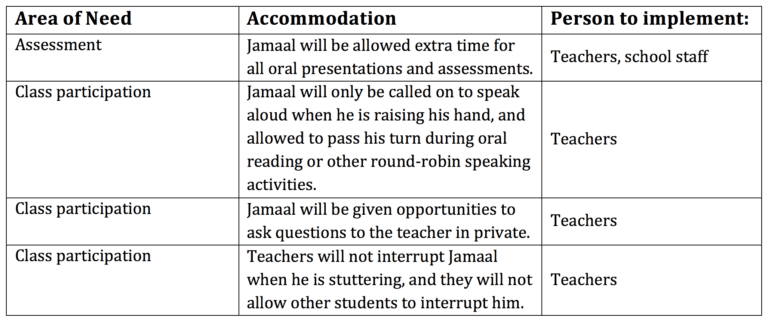WHat's the difference between an IEP and a 504 Plan?
What’s the Difference?
Before I get into the guidance, I just want to give you an ultra mini legal course in the difference between a 504 Plan and an IEP. An IEP comes from the Individuals with Disabilities Education Act (“IDEA”) and gives very specific rights to K-12 students with disabilities. An IEP entitles your child to specialized instruction, usually by a special ed teacher, and services in school, such as SLT and OT. A Section 504 Plan comes from an entirely different law, Section 504 of the Rehabilitation Act. To make it simple, Section 504 comes into play for your disabled child if he or she needs accommodations to participate with their peers on “a level playing field.” In order to be eligible for an IEP, your child needs to be performing very poorly academically or behaviorally. On the other hand, to get a 504 Plan, your child does not need to be doing poorly in school, they just accommodations.
What Are Accommodations?
The key way schools can help disabled children participate fully in school in spite of their disabilities is by providing “reasonable accommodations.” An accommodation is an adjustment to a system (here, the school system) to make it fair for a disabled child. It’s not to give the child an edge over someone else, but to make the playing field fair. Section 504 and an IEP can both give a student accommodations, such as extended time testing, a wheelchair ramp or verbal prompts to pay attention.
Sample 504 Plan

Conclusion
If your child is performing below average in school and needs specialized instruction, accommodations or services, they should get an IEP. On the other hand, if all your child needs are accommodations to participate on “a level playing field” with their peers, they should get a 504 Plan. There’s two main situations when you can use Section 504 to their benefit. First, obviously if your child is physically or medically disabled, you can use a 504 Plan to get physical accommodations to the school facilities or a 1:1 aide, for instance, to ensure they have access to the school and are safe from injury. Second, you can use Section 504 to obtain certain accommodations, such as those in the sample 504 Plan above. Accommodations are often very helpful for students who have anxiety, emotional and attention issues, or other disabilities which result in slower or more burdensome performance than their peers.
